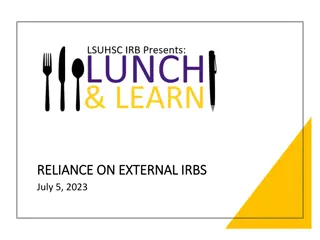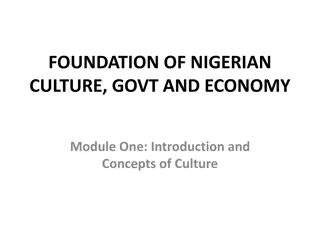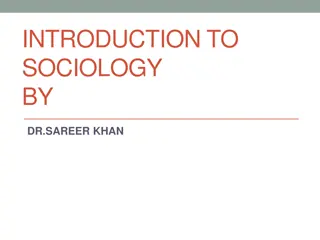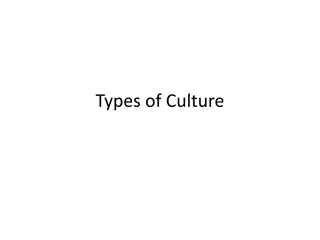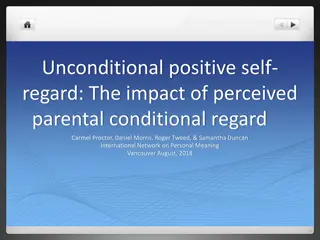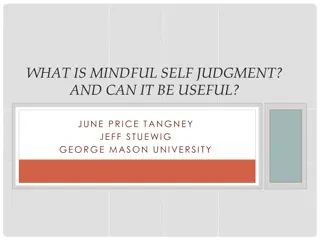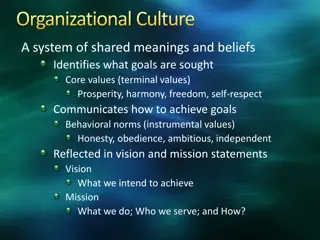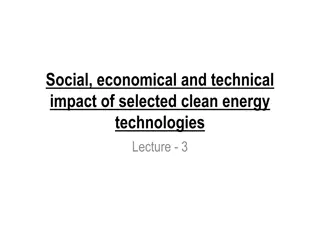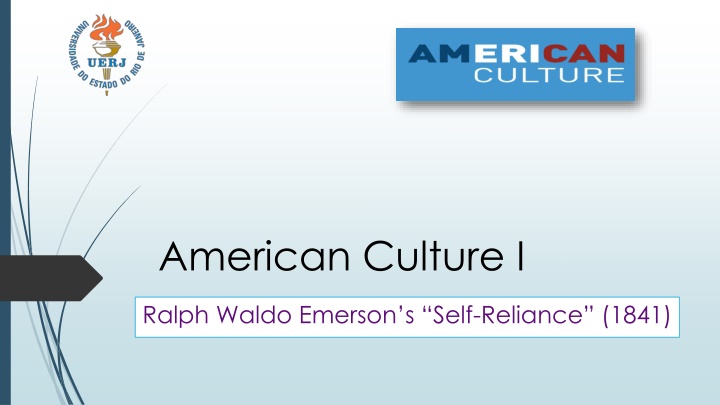
Ralph Waldo Emerson's Impact on American Culture and Philosophy
Explore how Ralph Waldo Emerson's essays, particularly "Self-Reliance," shaped American culture and philosophy in the 19th century. Discover his emphasis on nonconformity, self-reliance, and intuition, influencing thinkers like Thoreau and Whitman.
Download Presentation

Please find below an Image/Link to download the presentation.
The content on the website is provided AS IS for your information and personal use only. It may not be sold, licensed, or shared on other websites without obtaining consent from the author. If you encounter any issues during the download, it is possible that the publisher has removed the file from their server.
You are allowed to download the files provided on this website for personal or commercial use, subject to the condition that they are used lawfully. All files are the property of their respective owners.
The content on the website is provided AS IS for your information and personal use only. It may not be sold, licensed, or shared on other websites without obtaining consent from the author.
E N D
Presentation Transcript
American Culture I Ralph Waldo Emerson s Self-Reliance (1841)
Ralph Waldo Emerson (1803-1882) Without Emerson s inspirational essays on nonconformity, self-reliance, and anti-institutionalism, Henry David Thoreau s and Margaret Fuller s careers may have followed different paths; and without Emerson s call for an American bard whose poetry speaks somewhat wildly in addressing the nation s ample geography , [Walt] Whitman s great poetry might never have been written [ ]. (p. 211) Emerson s [ ] skepticism toward historical Christianity was strengthened by his exposure to the German higher criticism , which regarded the Judeo-Christian Bible as a document produced in a specific historical time, rather than as the direct word of God, and interpreted biblical miracles as stories comparable to the myths of other cultures. Emerson was gradually developing a greater faith in individual moral sentiment and intuition than in revealed religion (p. 211).
Emersons Philosophy Plato European Romanticism Mind as actively (not passively) intuitive and creative
Emersons Philosophy Walt Whitman s Song of Myself (Leaves of Grass) If you want me again Look for me under your boot soles
Emersons Philosophy nonconformity Anti-institutional Focused on the present SELF-RELIANCE Self-culture Self-centered Self-trust
Self-Reliance (1841) [ ] original and not conventional[ ] To believe your own thought, to believe that what is true for you in your private heart, is true for all men, - that is genius. [ ] for always the inmost becomes the outmost. (p. 269) [ ] the highest merit we ascribe to Moses, Plato, and Milton, is that they set at naught books and traditions, and spoke not what men but what they thought. A man should learn to detect and watch that gleam of light which flashes across his mind from within, more than the lustre of the firmament of bards and sages. Yet he dismisses without notice his thought, because it is his. (p. 269)
Self-Reliance (1841) Trust thyself[ ]. Great men have always done so and confided themselves childlike to the genius of their age, betraying their perception that the Eternal was stirring at their heart, working through their hands, predominating in all their being. And we are now men, and must accept in the highest mind the same transcendent destiny; and not pinched in a corner, not cowards fleeing before a revolution, but redeemers and benefactors, pious aspirants to be noble clay plastic under the Almighty effort, let us advance and advance on Chaos and the Dark. (p. 270)
ABORIGINAL SELF The magnetism which all original action exerts is explained when we inquire the reason of self-trust. Who is the Trustee? What is the aboriginal Self on which a universal reliance may be grounded? [ ] The inquiry leads us to that source, at once the essence of genius, the essence of virtue, and the essence of life, which we call Spontaneity or Instinct. We denote this primary wisdom as Intuition, whilst all later teachings are tuitions. (p. 277) vs. INTUITION TUITION Thoughtless people [ ] do not distinguish between perception and notion. They fancy that I choose to see this or that thing. But perception is not whimsical, but fatal. (p. 277)
What I must do, is all that concerns me, not what the people think. This rule, equally arduous in actual and in intellectual life, may serve for the whole distinction between greatness and meanness. [ ] It is easy in the world to live after the world s opinion; it is easy in solitude to live after our own; but the great man is he who in the midst of the crowd keeps with perfect sweetness the independence of solitude. (p. 272) [ ] But your isolation must not be mechanical, but spiritual, that is, must be elevation. At times the whole world seems to be in conspiracy to importune you with emphatic trifles. Friend, client, child, sickness, fear, want, charity, all knock at once at thy closet door and say, Come out unto us Do not spill thy soul; do not all descend; keep thy state; stay at home in thine own heaven; [ ] (p. 279)
Self-Reliance (1841) Then, again, do not tell me, as a good man did to-day, of my obligation to put all poor men in good situations. Are they my poor? I tell thee, thou foolish philanthropist, that I grudge the dollar, the dime, the cent I give to such men as do not belong to me and to whom I do not belong. There is a class of persons to whom by all spiritual affinity I am bought and sold; for them I will go to prison, if need be; by your miscellaneous popular charities; the education at college of fools; the building of meeting-houses to the vain end to which many now stand; alms to sots[ ]. (p. 272)
How to Become a Nonconformist The nonchalance of boys[ ] and would disdain as much as a lord to do or say aught to conciliate one, is the healthy attitude of human nature. How is a boy the master of society; independent, irresponsible, looking out from his corner on such people and facts as pass by, he tries and sentences them on their merits [ ], as good, bad, interesting, silly, eloquent, troublesome. [ ] he gives an independent, genuine verdict. [ ] But the man is, as it were, clapped into jail by his consciousness. [ ] the same unaffected, unbiased, unbribable, unaffrightened innocence, must always be formidable, must always engage the poet s and the man s regards. (p. 271)
Self-Reliance (1841) These are the voices which we hear in solitude, but they grow faint and inaudible as we enter into the world. [ ] Society is a joint-stock company in which the members agree for the better securing of his bread to each shareholder, to surrender the liberty and culture of the eater. The virtue in most request is conformity. Self-reliance is its aversion. (p. 271)
The Hardship of Being a Nonconformist For non-conformity the world whips you with its displeasure. And therefore a man must know how to estimate a sour face. It is easy enough for a firm man who knows the world to brook the rage of the cultivated classes. Their rage is decorous and prudent, for they are timid as being very vulnerable themselves. But when to their feminine rage the indignation of the people is added, when the ignorant and the poor are aroused, when the unintelligent brute force that lies at the bottom of society is made to growl and mow, it needs the habit of magnanimity and religion to treat it godlike as a trifle of no concernment. (p. 273)
The Hardship of Being a Nonconformist The other terror that scares us from self-trust is our consistency; [ ] because the eyes of others have no other data for computing our orbit than our past acts, and we are loath to disappoint them. Why drag about this monstrous corpse of your memory? Lest you contradict somewhat you have stated in this or that public place? Suppose you should contradict yourself; what then?
A foolish consistency is the hobgoblin of little minds, []. With consistency a great soul has simply nothing to do. [ ] Else, if you would be a man, speak what you think to-day in words as hard as cannon balls, and to-morrow speak what to-morrow thinks in hard words again, though it contradict everything you said to-day. [ ] Misunderstood! It is a right fool s word. Is it so bad then to be misunderstood? Pythagoras was misunderstood, and Socrates, and Jesus, and Luther, and Copernicus, and Galileo, and Newton, and every pure and wise spirit that ever took flesh. To be great is to be misunderstood. (p. 274) Do I contradict myself? Very well then I contradict myself; (I am large, I contain multitudes)
Is it all about being truly American? Insist on yourself, never imitate (p. 284) Our houses are built with foreign taste; our shelves are garnished with foreign ornaments; our opinions, our tastes, our whole minds lean, and follow the Past and the Distant, as the eyes of a maid follow her mistress. (p. 283) [ ] and if the American artist will study with hope and love the precise thing to be done by him, considering the climate, the soil, the length of the day, the wants of the people, the habit and form of the government, he will create a house in which all these will find themselves fitted, and taste and sentiment will be satisfied also. (p. 284)

